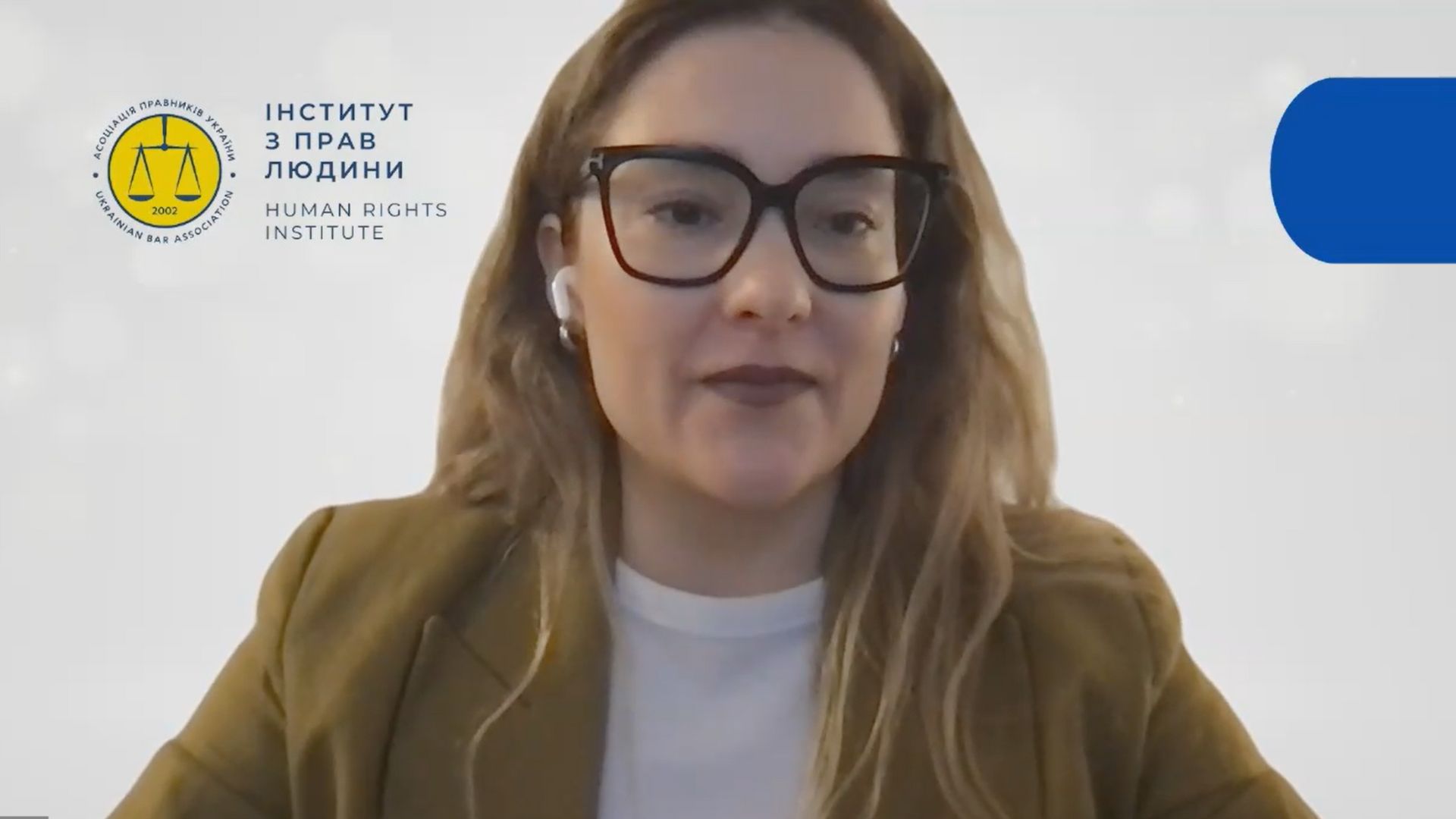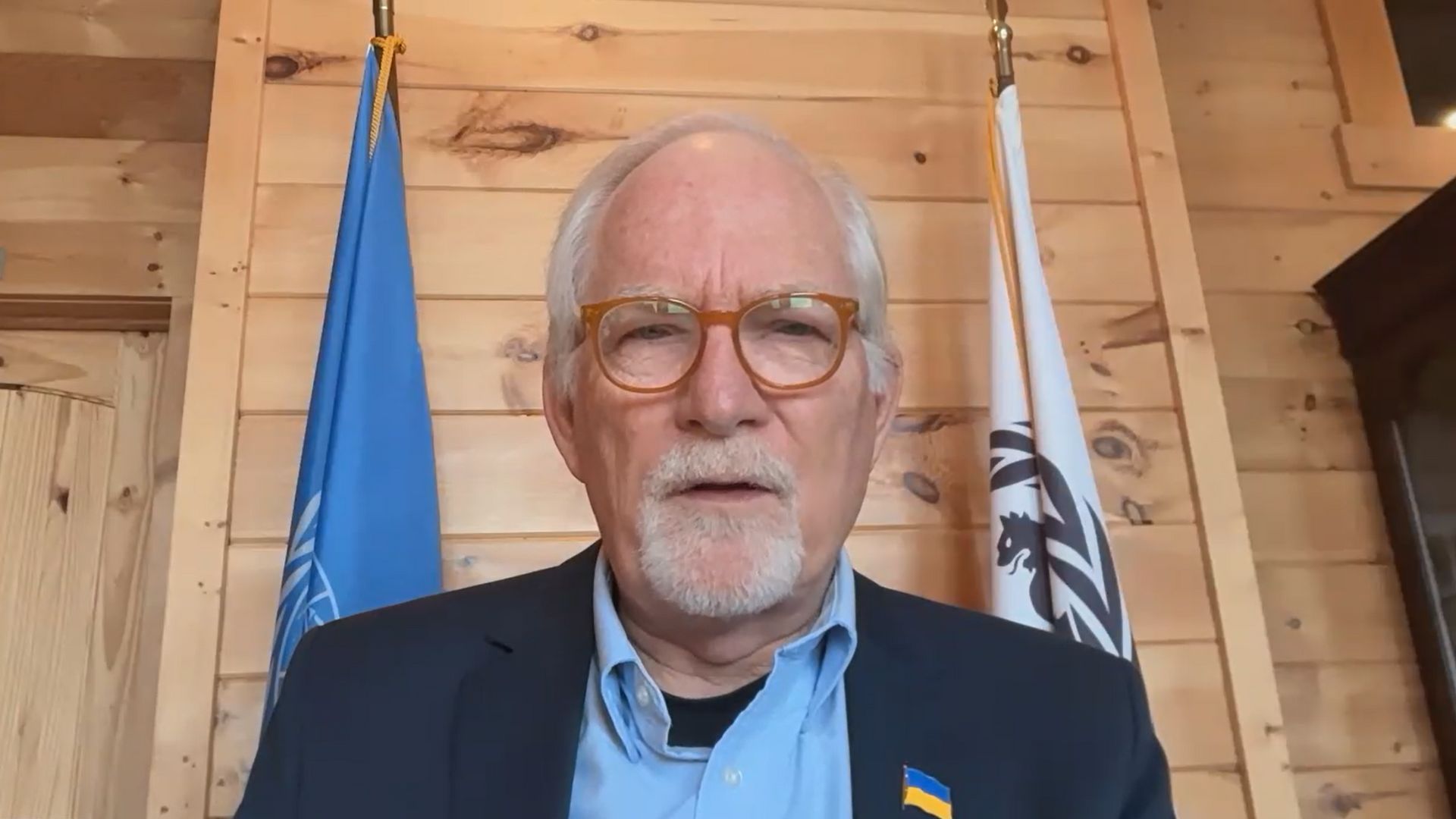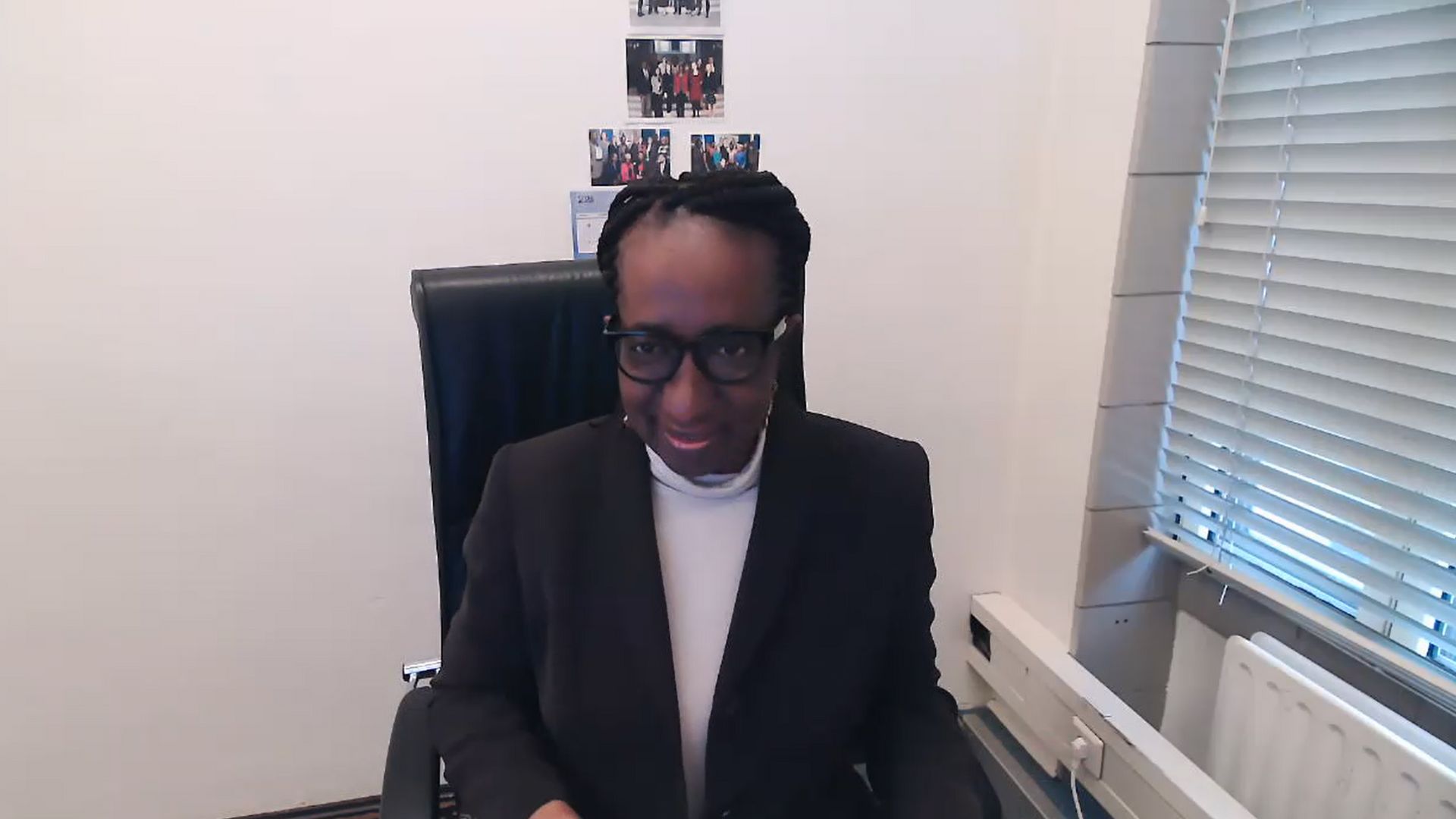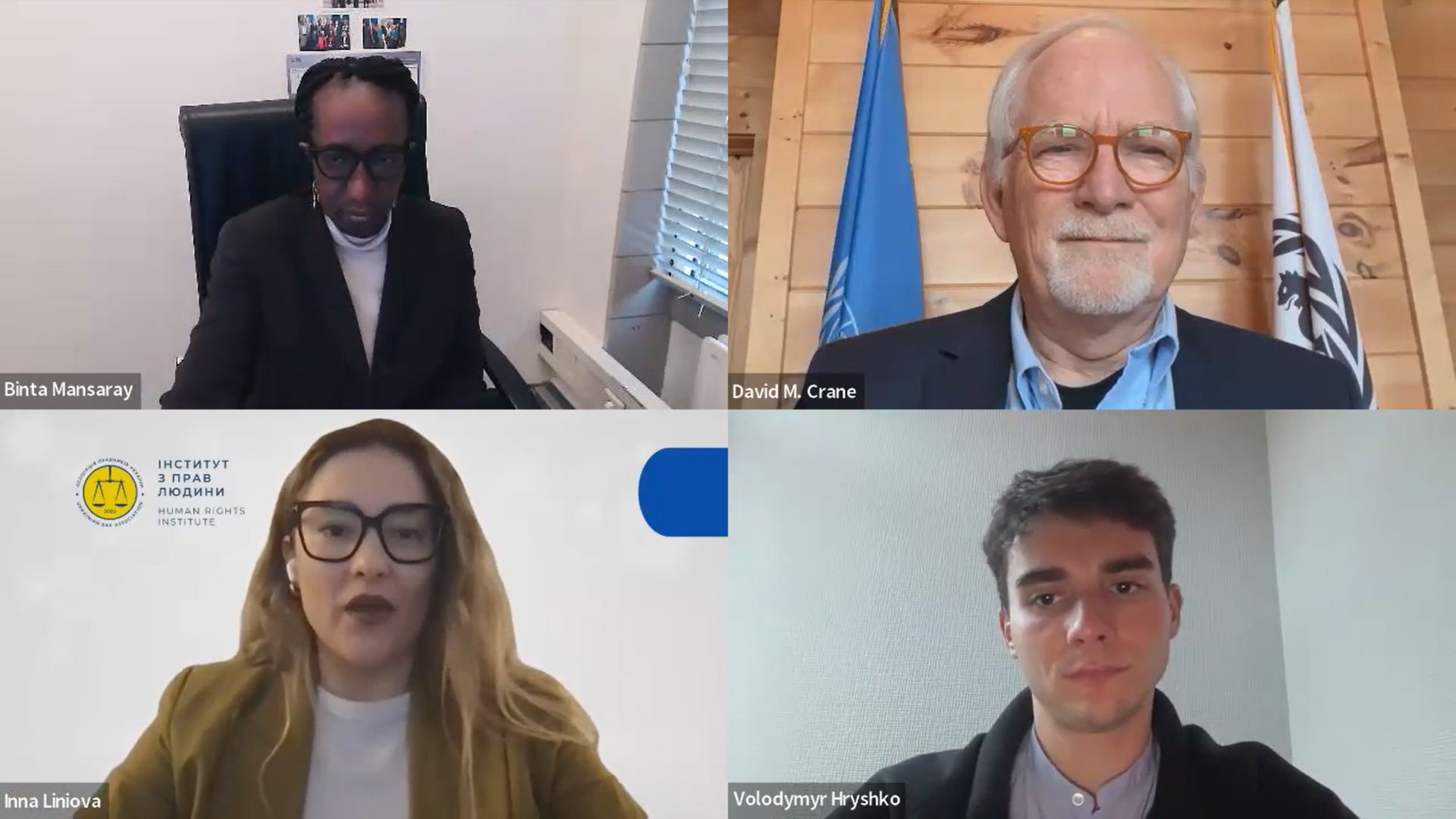Truth, Justice, and Reconciliation: What Ukraine Can Learn from the Sierra Leone Experience
The third webinar in the series on transitional justice, organized by the Human Rights Institute of the Ukrainian Bar Association (UBAHRI) in cooperation with the International Center for Transitional Justice (ICTJ), the National University of “Kyiv-Mohyla Academy,” and Truth Hounds, has taken place. This session focused on Sierra Leone’s experience in implementing a comprehensive approach to truth-seeking, accountability, and reconciliation following years of devastating civil war.
For over a decade, Sierra Leone endured intense violence marked by war crimes, widespread human rights violations, and a profound erosion of public trust in state institutions. Invited speakers discussed how the country managed to combine the work of the Truth and Reconciliation Commission and the Special Court, and to what extent it succeeded in implementing reparations and institutional reforms. Particular attention was given to how relevant these lessons are for Ukraine amid ongoing war and the pursuit of a just peace.
The discussion was moderated by Inna Liniova, Director of the Human Rights Institute of the Ukrainian Bar Association. In her opening remarks, she thanked the co-organizers and emphasized that the webinar was devoted to examining Sierra Leone’s experience, which in many respects has become a model for transitional justice implementation. She noted that Ukraine is determined to follow this example, particularly in ensuring accountability and establishing a special tribunal for the crime of aggression against the Ukrainian state.

David M. Crane, former Chief Prosecutor of the Special Court for Sierra Leone and founder of the Global Accountability Network, began his address by recalling his early collaboration with Binta Mansaray in 2002, when they launched a unique nationwide town hall program engaging victims of the conflict. He emphasized that victims have a strong desire to share their stories, and this must be taken into account when designing accountability mechanisms—both in Sierra Leone and in Ukraine.

Crane underscored that Ukraine has a real opportunity to achieve justice through the establishment of a special tribunal for the crime of aggression. “We don’t have to reinvent the wheel—we’ve done it before. We held a sitting president accountable, and we will do it again. Vladimir Putin hears our footsteps and knows that justice is coming,” he stated.
He outlined four waves of international accountability, beginning with the Nuremberg Tribunal and culminating in modern initiatives such as the proposed Special Tribunal for the Crime of Aggression against Ukraine. Notably, he referred to the case of Charles Taylor, which he led as Chief Prosecutor, noting, “We not only indicted and convicted the former president of Liberia, but we also set a precedent that no head of state is above the law.”
The speaker emphasized the strategic approach taken in establishing and operating the Special Court for Sierra Leone. Unlike other international tribunals, this court was guided from the outset by a clearly defined mandate, limited duration, and a focused operational strategy. These factors enabled it to complete its work more swiftly and effectively than comparable institutions.
One of the key elements of success, according to Crane, was the court’s deep engagement with the local population. The outreach team conducted a comprehensive public engagement program, visiting communities across the country, listening to victims’ testimonies, and building public trust in the judicial process. This approach made justice more accessible and understandable to those most affected by the conflict.
Crane also highlighted the importance of parallel but independent efforts in truth-seeking and justice. The Special Court and the Truth and Reconciliation Commission operated simultaneously, yet independently, refraining from using each other's materials as evidence. This separation ensured public trust and reinforced the legitimacy of both mechanisms.
He further noted the court’s pioneering role in the legal recognition of new categories of crimes, such as the conscription of children into armed conflict, sexual slavery, gender-based violence, and attacks on United Nations peacekeepers. Crimes against women and children were placed at the center of the indictments—a move he described as fundamentally the right decision.
In closing, David M. Crane expressed his support for Ukraine, emphasizing that the pursuit of justice is both morally and legally justified, and that the future prosecution of perpetrators is inevitable.
In her remarks, Binta Mansaray, Registrar of the Residual Special Court for Sierra Leone, focused on the unique characteristics and challenges of managing international criminal tribunals. She stressed that the core mission of the court’s administration was to ensure the efficient operation of all its components in order to fulfil the mandate of prosecuting those bearing the greatest responsibility for war crimes. However, in Sierra Leone’s context, this meant bringing only a handful of individuals to justice out of tens of thousands of participants in the conflict, which presented a significant challenge in terms of how justice was perceived by the local population.

Ms. Mansaray shared that due to limited jurisdiction and resources, many in society questioned why only a few individuals were prosecuted while many others remained unaccountable. This made the court’s outreach program a crucial part of its work — engaging the public, explaining the court’s mandate, its limitations, and the rationale behind the selection of accused persons. She emphasized that such public engagement efforts should begin even before a tribunal is established to prevent erosion of public trust.
She also highlighted the financial and logistical challenges the court faced. It operated in a post-conflict environment with no existing infrastructure — there was no electricity, water, telecommunications, or roads. Everything had to be built from scratch, significantly increasing operational costs. Moreover, the court’s budget relied entirely on voluntary contributions from donors, which required ongoing fundraising and diplomatic efforts. This dependence also created the risk of accusations of political influence, which had to be constantly addressed and countered.
In concluding her remarks, Binta Mansaray underscored the importance of establishing robust systems for document preservation and archiving from the outset of a tribunal’s operations. According to her, good governance, transparency, and continuity form the foundation of public trust in tribunals and are essential to the realization of genuine justice.
Volodymyr Hryshko, Legal Advisor at Truth Hounds, centered his presentation on the intersection between peace and justice. Drawing on the Sierra Leonean experience, he noted that despite the Lomé Peace Agreement's provisions granting amnesty to all parties in the conflict, the Special Court ultimately ruled such amnesties inapplicable to international crimes. This, he emphasized, reinforces the crucial principle that amnesty cannot be extended to war crimes, crimes against humanity, or genocide.

Mr. Hryshko stressed that sustainable peace is unattainable without elements of justice. Even with limited resources, he argued, it is vital to prioritize so-called “high-impact” cases — symbolic prosecutions that carry significant societal resonance, particularly crimes committed against women and children. Such cases not only shape public awareness and reinforce international support, but also help establish accountability standards.
He further highlighted the importance of adhering to international legal obligations. Instruments like the Convention Against Torture and the Genocide Convention, along with numerous international court rulings, affirm that amnesty for the gravest crimes is impermissible under international law. As an illustrative example, he referenced the “Simón” case in Argentina, which enabled the reopening of prosecutions after years of impunity under amnesty laws.
Volodymyr Hryshko also warned that excluding justice from Ukraine’s post-conflict settlement could have serious consequences. These include the risk of political reluctance to pursue investigations, funding shortages, the loss of expert support, and ultimately a “dormant” phase of impunity. He stressed that sustainable peace must incorporate justice as an indispensable component.

In concluding the webinar, participants emphasized the complexity of amnesty in the context of international crimes and the imperative not to compromise justice for the sake of superficial peace. They agreed that while the scale and nature of conflicts differ, the lessons from Sierra Leone remain highly relevant to Ukraine. In particular, the precedent that international crimes are not negotiable and cannot be “nullified” by political agreements was deemed especially important.
The speakers also shared the view that a tribunal for the crime of aggression could serve as a “stabilizing gyroscope” amid turbulent political realities. Even if this is only the beginning, they agreed, the foundations for lasting peace through justice are already being laid.
The full recording of the event is available on the UBA YouTube channel.
